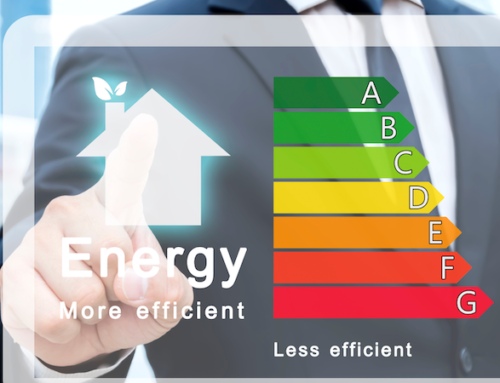
Europe is on the verge of a green shift in the transport sector, thanks to recent findings by the European Environment Agency (EEA). The agency has just published two studies that analyze the environmental impacts of different modes of transport in Europe: roads, railroads, airplanes and ships.
The first study, entitled "Reference for monitoring transport emissions", examines the emissions of greenhouse gases, air pollutants and noise produced by the various modes of transport. The second study, entitled "Reference for energy efficiency and CO2 emissions from transport", analyzes the energy efficiency and CO2 emissions of the various modes of transport.
And the conclusions are exciting! The most environmentally friendly mode of transport in Europe is the train. Rail transport produces fewer greenhouse gas emissions, air pollutants and noise than other modes of transport such as aviation and road transport. Trains are also more energy efficient, consuming less energy per passenger per trip.
Of course, not all trips can be made by train, and rail transport may have some limitations in terms of accessibility and scheduling compared to other modes of transport. However, given the environmental impacts of transport, the EEA recommends further promoting rail mobility and encouraging the use of trains for long-distance travel.
But what's so special about rail transportation? Trains reduce greenhouse gas emissions and noise, while saving energy. It's like they travel sustainably, leaving no carbon footprint behind. In addition, they have the extraordinary ability to move on rails, avoiding the traffic and congestion we often encounter on the roads.
Environmental impact of trains, planes and cars
But there's more. The 2020 Annual Transport and Environment Report(TERM) says that the transition from air travel to trains could play a key role in achieving the European goal of reducing greenhouse gas emissions by 90 percent by 2050. So taking the train instead of the plane is now the big step towards a greener future.
And what about the car? Well, unfortunately, traditional cars aren't exactly environmental heroes. The greenhouse gas emissions and air pollutants they produce contribute to our fight against climate change. But there is hope! Electric cars...
Transport in Switzerland: choose the ecological option!
In Switzerland, transportation has a considerable impact on the environment, as it does in many other parts of the world. It is therefore crucial to choose the right mode of transportation to reduce our overall environmental footprint. In general, rail and car transport in Switzerland have a lower environmental impact than air transport. Find out more below!
Air transport: fast but polluting
Air transport is undeniably the fastest means of transport, but it is also the most polluting. The greenhouse gas emissions produced by air transport in Switzerland are considerable. In 2019, it accounted for about 18% of the country's total greenhouse gas emissions. Moreover, a round-trip flight from Zurich to New York generates about 2.5 tons of CO2 per passenger, which is equivalent to the CO2 emissions of an average car in Switzerland for a whole year. Despite these alarming figures, air travel in Switzerland has continued to grow in recent years, with an increase of 4.7% in 2019 over the previous year. However, the COVID-19 pandemic has had a significant impact on air transport in Switzerland, with a 66.4% decrease in passenger traffic in 2020 compared to the previous year.
Automobile transportation: a considerable impact
Automobile transport in Switzerland, as elsewhere, has a significant impact on the environment. Cars emit greenhouse gases and air pollutants such as nitrogen oxide and fine particles. However, more environmentally friendly alternatives exist, such as electric cars and carpooling, which can help reduce the environmental impact of road transport.
Rail transport: an efficient and ecological solution
Rail travel is one of the most efficient and environmentally friendly ways to get around Switzerland. Switzerland's rail network is highly developed and offers a multitude of transportation options, including high-speed trains, regional trains and streetcars. Compared to air and automobile transport, rail transport emits far fewer greenhouse gases and air pollutants. In addition, most trains in Switzerland run on electricity from renewable sources such as hydroelectricity.
In general, if you want to reduce your environmental impact when traveling in Switzerland, it is better to choose more environmentally friendly rail or car transport rather than air transport. However, switching to renewable energy sources for automobiles can also help reduce the overall environmental impact of the transportation sector.
Transport in Switzerland: discover the key figures!
Do you know how much of Switzerland's energy consumption is accounted for by transportation? Well, in 2020, it represented 33.5% of the total energy consumption in the country. That's huge! But that's not all. Let's take a look at some interesting figures.
Of this transport-related energy demand, 63.5% was covered by petroleum products such as gasoline and diesel. This means that traditional fuels still largely dominate the Swiss landscape. On the other hand, electricity accounted for 19.7% of energy demand, which is encouraging. And the remaining 16.8% came from biofuels, natural gas and other alternative energy sources.
Now, here's an interesting fact: in 2020, the consumption of petroleum products in the transportation sector decreased by 7.7% compared to the previous year. Why? Well, it could be due to the COVID-19 pandemic and mobility restrictions that have reduced travel. But here's the good news: electricity consumption in the transportation sector increased by 30.4% during the same period, thanks to the growing popularity of electric vehicles.
These figures reveal that despite the presence of more sustainable alternatives such as public transport and bicycles, private cars are still widely used in Switzerland. However, the adoption of electric vehicles is on the rise, which holds promise for reducing the environmental impact of the transport sector in the long term.
So what do you think? Switzerland is moving towards more ecological and sustainable transportation. It's time to take the wheel (or handlebars) of change and participate in this green revolution!
Emissions from domestic heating vs. transport in Switzerland
Let's start with home heating. Do you know what its contribution to total emissions is in our beautiful Alpine country? Be prepared to be surprised: in 2020, home heating emissions accounted for 22% of total greenhouse gas emissions in Switzerland. So if you thought that heating your home was only about comfort, you were completely wrong!
But now for the twist: have you ever thought about the impact of transport on emissions compared to home heating?
I assure you that it's a chilling figure! In 2020, emissions from the transport sector exceeded those from home heating, accounting for 35% of total greenhouse gas emissions in Switzerland. This is a considerable percentage!
Some more figures! Let's take the aforementioned plane from Zurich to New York or Geneva to New York. Well, with about 200 passengers, this trip emits statistically 500 tons of CO2. This would correspond to the annual heating consumption of *60 houses of 250 m2 with a IDC of 125 kWh / m2 and heated with oil *80 houses of 250 m2 with a IDC of 125 kWh / m2 and heated with gas.
These figures show us that it is important to take care of domestic heating and to adopt efficient solutions, but we cannot ignore the significant impact of transport on climate change either. It's time to take action to make a difference.
Imagine if we all took the change into our own hands: choosing more sustainable means of transportation, such as public transit, bicycles or even electric vehicles, could help significantly reduce emissions from the transportation sector. Not only would we have a positive impact on the environment, but we could also breathe cleaner air and live in a greener, healthier country.
What are we waiting for? It's time to make a conscious and responsible choice for our future and that of future generations. We have the power to change the situation and create a better world. A world where home heating and transport are allies in the fight against climate change.
Together we can push Switzerland towards a real ecological transition, by reducing emissions from both home heating and transport. Now is the time to act.
To go deeper:
Optimize the heat consumption of a building
Photovoltaic solar panels in Switzerland
Discover all the articles




